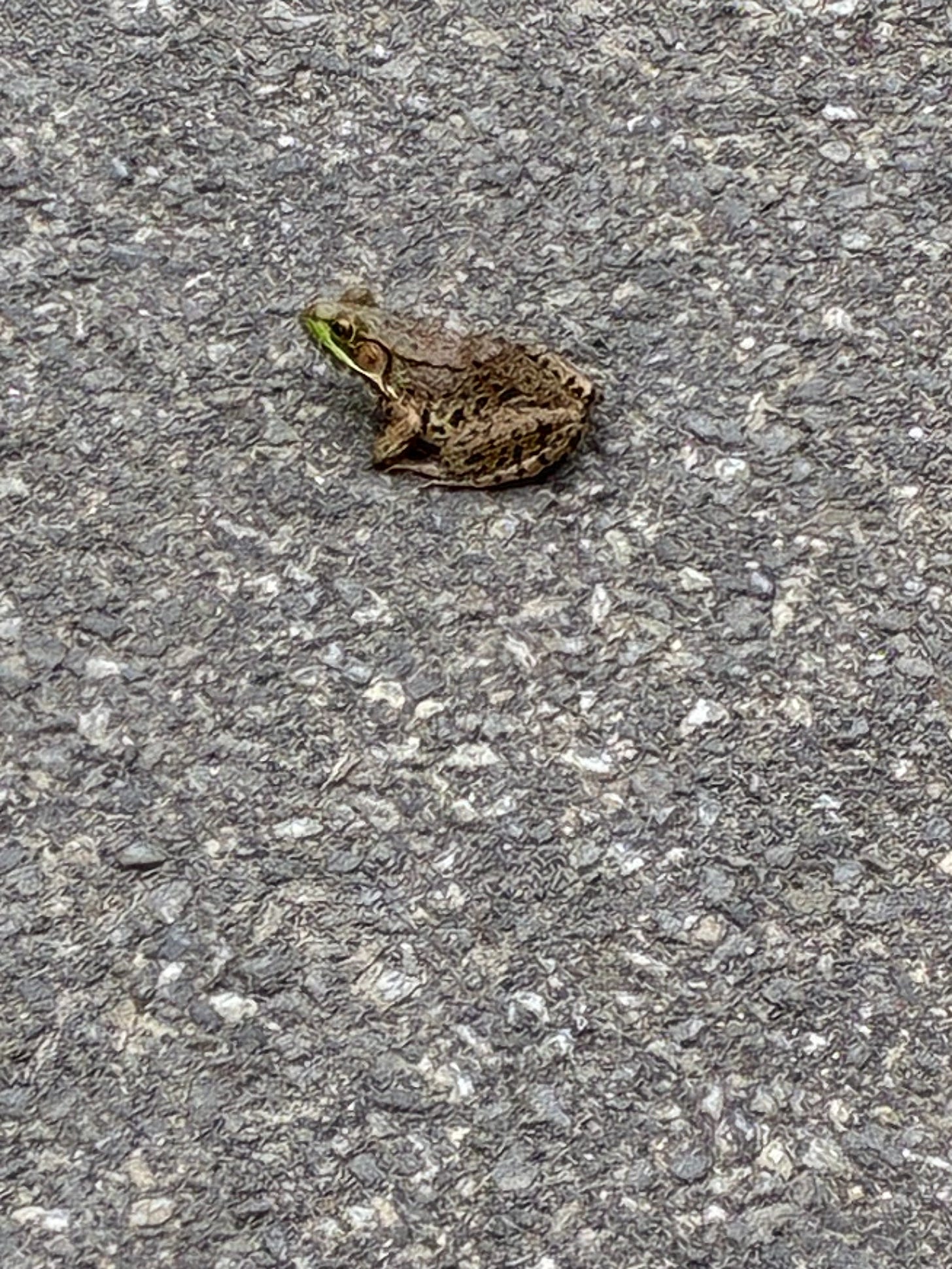Dear Starlight,
At first, I wanted to ask, "Tell me about trust."
But as I walked around its girth — the width of an above-ground pool — and examined its sprawling limbs, aching with weight and the desire to touch the ground, I realized the question might not be the right fit. This tree, a blessed cucumber magnolia with a view of paradise, looked tired. Tired of raising its arms to heaven. A few centuries of praise may be too much, even for a sainted tree.
I noticed it had custom-built supports made of iron, rope, chain — even one that looked like an old-fashioned crutch. The hobbled tree was being cared for in perpetuity lest it fall in on itself and die. I wondered: Did the tree ask for or appreciate the gesture to be held up?
I wonder sometimes if our dying want their defunct bodies bathed, rolled over, breathed into, or electrocuted back into a gasping moment or two.
I know my son doesn't even want me to wake him up when he sleeps through his alarm.
And so a new question arose:
"Tell me how you want to be helped."
I have not heard from the tree yet, but the question has stayed. Disappearing, reappearing, lingering through these past few weeks. It seems to be the question — the one that opens the door to regenerative connection.
—
This morning, as I walked down to the river, a giant yellow school bus hurtled past, its windows filled with children's faces pressed to the glass, their gazes empty. I thought I saw a green leaf bounce and swirl in its wake. But as I got closer, I recognized it was a frog.
He sat completely still in the middle of the black asphalt. I approached him, eager to gently encourage him to move to safety. But he wouldn't budge. I walked on with deep worry, glancing over my shoulder, seeing his unreadable stare still in my mind — he hadn't moved.
I suppose, now writing this, I could have imagined picking him up, but that level of childlike courage bounced away a while ago. I'm reluctant these days to grab critters by foot or tail.
A few steps later, I came to the yellow-shingled corner house just before the river. I pass it daily. I'm familiar with its sounds: a yippy dog, a radio, a woman always on the phone — talking to a sister or friend in Florida.
Today, I noticed the woman struggling.
A stocky broad with square-framed glasses and short grayish hair in her late seventies, I'd guess. She was trying to drag a big ol’ bag of soil seeping out the torn corner, up the stairs — one slow step at a time. She'd drag it, drop it, then hang her body like a wilted gladiola in her pink oversized t-shirt over the stair railing, brace herself, and reach again.
I stopped and asked in my sing-song chickadee voice,
"Good morning, can I help you with that?"
She looked toward me, gave a little laugh, and said,
"No, that's alright."
I saw her reach again, barely standing, so I gently insisted with a smile:
"Are you sure I can't help?"
She replied:
"No. Carry on."
And the "carry on" sliced the air like a small deadly dagger.
Then she started laughing — loud, mocking:
"Ha! Help me!? TWERP!!! Ha! The twerp asking to help me! Hahahaha! Twerp."
She carried on with her mocking laughter as she heaved the bag up the stairs, and I walked toward my sacred sit spot to join my beavers and birds — in a stunned state.
When was the last time I heard the word twerp? Twerp… twerp…ah, not the same, but maybe shared etymology, chirp, the word for the sound birds make.
—
Sitting by the silver river, listening to the chirping tweets of the morning birds, I thought about all the times I've rejected help — directly or indirectly — usually because I didn't feel worthy of it.
I thought about the times I've let others' needs or good intentions dictate my decisions simply because I wanted to please them.
I thought about the interpersonal challenges that arise in workplaces, especially from miscommunication of needs or from overreaching — taking too much responsibility in the name of being "helpful."
I said a prayer for the woman — that she someday feels safe enough to receive help.
I said a prayer for the frog — that he moves along.
I said a prayer for myself —
that I learn, sooner rather than later, how to answer the question:
"How do I need and want to be helped?"
and that I dare to live the answer.
PS. I’d love to learn your answer or how you answer this question with yourself, your partner, your kiddo’s, colleagues, parents…and added bonus how do you know what they need and want that you can help with?









In growing older I’ve become more conscious of what “help” is. Help for myself is receiving govt assistance for health care &food. Transportation from friends when I didn’t have a car for a year was always an “ask”. Money from a dear friend who helped me pay for a car was one of the biggest helps I received in my life. I’m aware of these daily gifts that come and my capacity for gratitude swells. In return to be of service to others in need is ever present. Volunteering in my community is weekly. I’m more alert to the elders and less fortunate and like you, I’ll ask a senior if they need help carrying something. Helping my neighbors in diff ways is important to me. I want to let them know that they can ask me for help. At the same time I’m super aware of needed boundaries drawn for myself. I love the saying “good fences make good neighbors”.
I spent 10+ years in a "helping profession." Part of how I ended up there was because I wanted to be useful. One one level, at the beginner's level, I was immediately helpful. But the more I learned, the more nuanced my understanding became, I began to see my help as centered in me and my mandate (from the profession, from the job, from the organization that employed me). The help was foisted upon my clients (children and their caregivers). We told them what kind of help they needed...it caused an existential crisis for me and was one of the reasons why I left. Now I am trying to learn new ways of working in a different field and I have to ask for help constantly. It is humbling. It's hard to be the one who stops a meeting and says, "I don't understand" but I have to, over and over again. I have learned the more specific I can be in my ask, the better. Sometimes being specific is just saying, "I am really overwhelmed and I need help locating what to ask for help with." I have a 13 year old; she almost never wants my help. She sees it as overstepping, no matter what the offer.